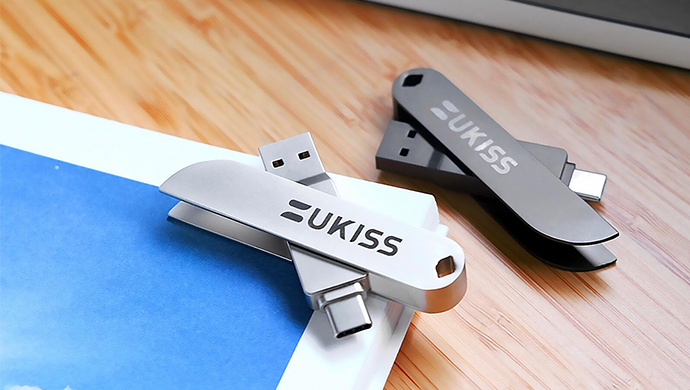
The UKISS HugwareTM hardware wallet and cryptosecurity device.
Photo: UKISS Technology
The surge in internet-related crimes has become a cause for concern for businesses and individuals, and rightfully so. But with the right tools in place, everyone can play a part in fighting cybercrime.
Phishing and ransomware attacks rose in Singapore in the last two years as more people shifted online during the pandemic. Last year, the Cyber Security Agency said that it detected more than 40,000 unique phishing URLs and 85 cases of ransomware attacks in 2020.
What is phishing?
Phishing refers to a tactic commonly used by cybercriminals to gather personal information through deceiving emails and messages. The goal is usually for the target to click a link and give up their details, thereby giving attackers access to assets like bank accounts, or downloading a document planting malware into a computer system.
Also read: Putting the Tech in Textile: D-Plus Trading reinvents the textile scene
What is ransomware?
Ransomware refers to a type of malicious software designed to block access to data, documents, and systems until the victim pays up. Attackers usually use encryption to block access, leading to network breakdowns that may result in financial losses or expose sensitive documents that can cause reputational damage.
It takes a village to nurture a healthy online environment, as cliche as that may sound. Good data hygiene starts with nobody but you. With the right tools, integrating data protection habits into our daily lives can be smooth sailing.
Here’s how:
- Encryption
Encryption is a method of securing digital data by encoding its original representation into a cryptic format that only authorised parties or key-holders can decipher. Imagine converting all your sensitive files into cryptic texts. How would a hacker gather any information about yourself despite intruding on your computer or phone?
Encryption software like the U-Hide provides safe encryption of frequently accessed files that can only be accessed by you, the key-holder. The key is secured by a physical cryptosecurity device and authenticator known as the HugwareTM.

U-Hide software logo by UKISS Technology
- Backup
Backing up your files or duplicating them for storage in a separate network helps you quickly recover your files in the event of loss or device damage. But what some don’t realise is that backing up your folder can also protect you from losses caused by ransomware attacks.
Imagine being locked out of your system by a cyberattacker demanding ransom. With your backup, you can simply disregard the attack and reset your system and go on with your life like it never happened.
It is best to fortify your data with encryption wherever you store your backup. The U-Archive application will allow encryption of data backed up on the cloud (e.g. Dropbox and Google Drive) and accessible only by the Hugware authentication device holder.

U-Archive software logo by UKISS Technology
- What else can you do?
If you are still concerned about the risk of falling victim to cyberattacks, you may want to consider something called Self-Sovereign Identity, or SSI. It can be regarded as an advanced personal digital security framework involving decentralised identifiers, or DIDs, that can potentially be used in two-factor authentication processes instead of SMSes.
With all of these tools and modes of protection, you can sleep soundly knowing that your important data aren’t being accessed by malicious elements.
About UKISS Technology
Founded and incorporated in Singapore in 2021, UKISS Technology is dedicated to building an ecosystem of decentralised identity and cybersecurity solutions. Learn more about our hardware and software solutions and other exciting plans on our website, ukiss.io.
– –
This article is produced by the e27 team, sponsored by UKISS Technology
We can share your story at e27, too. Engage the Southeast Asian tech ecosystem by bringing your story to the world. Visit us at e27.co/advertise to get started.
The post Online threats? Protect yourself with these tools appeared first on e27.

